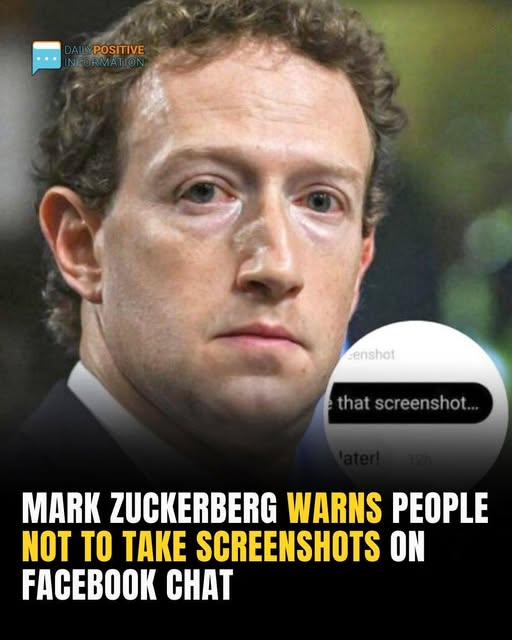Mark Zuckerberg Warns Against Taking Screenshots on Facebook Messenger

In a move stirring up a lively debate on online privacy and digital manners, Mark Zuckerberg, CEO of Meta (formerly Facebook), recently issued a clear warning to users about taking screenshots in Messenger—especially within end-to-end encrypted chats.
Zuckerberg revealed that with Messenger’s latest update, users will now be notified if someone screenshots a disappearing message, echoing privacy features familiar to Snapchat users. This rollout coincided with Messenger’s introduction of disappearing messages back in January 2022—a feature designed for conversations meant to vanish shortly after being read, giving users a heightened sense of security and intimacy without leaving a digital trail.
At present, this screenshot alert feature is live for Facebook users in the U.S., with plans to expand across Europe and beyond. Instagram, also under Meta’s umbrella, is expected to implement similar privacy enhancements soon, responding to mounting user demand for safer, more transparent communication tools.
Yet despite these steps forward, users have already flagged potential workarounds that could undercut the feature’s effectiveness. From screen recording apps to snapping photos of screens with another device—even temporarily disabling Wi-Fi to avoid detection—these loopholes underscore the enduring challenge tech companies face: safeguarding privacy in a world of inventive users.
Public reaction has been a rollercoaster. Zuckerberg’s announcement quickly went viral, sparking over 94,000 comments and igniting conversations across social media. Supporters praise the update as a vital stride toward protecting online conversations, especially amid rising concerns about data breaches and privacy violations.
But critics aren’t shy either. Many argue that tech giants should prioritize tackling bigger issues like misinformation, data security, and fostering real human connections rather than focusing on what some dismiss as minor cosmetic tweaks. One user voiced a common sentiment: “Instead of these small digital tricks, why not invest in encouraging genuine face-to-face connections and cutting screen addiction?”
Others took a lighter approach, with memes and jokes flooding Twitter and Instagram, playfully imagining how these notifications might expose secret screenshotters or spark awkward chats among friends and partners.
This update captures a wider tech-world tension: the balancing act between enhancing user privacy and preserving freedom and spontaneity in digital spaces. It also reflects shifting cultural attitudes about what privacy means in the age of social media.
As this feature spreads worldwide, it’ll be fascinating to see whether it truly deters screenshotting or simply inspires new ways to bypass detection. Will it promote more respectful digital interactions or fuel fresh tensions between users?
What’s your take? Is this a bold step forward for digital privacy—or an overreach that complicates how we share moments online? Maybe it’s time to rethink how much privacy we can realistically expect in our connected lives, or focus more on nurturing authentic, offline relationships.
Whatever you think, this discussion invites all of us to reflect on how we navigate privacy in today’s digital world. Share your thoughts—and maybe consider whether you want to save this conversation, or let it disappear.